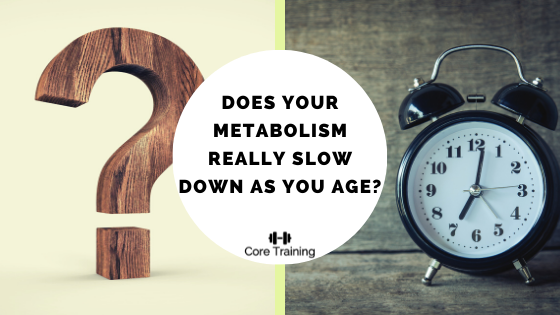Does your metabolism really slow down as you age?
It’s a widely-accepted idea that as you get older, your metabolism slows down, and therefore the amount of calories you ‘can’ eat therefore decreases. You often hear people talk about how they could eat whatever they wanted, but as soon as they ‘hit 30’, they just couldn’t get away with it anymore. Or that a diet that worked for someone in their 30s no longer works for them in their 50s. Now, the numbers will change based on who you talk to, but the basic idea is always, as you get older, your metabolism naturally slows down, and that’s why it becomes so much harder to lose weight or stay in shape.
But is it true? Does your metabolism actually slow down as you get older? No, it does not. Or at least not in the way most of us believe it does.
Now, as we get older, our metabolisms do change, as do our energy requirements. However, this doesn’t start when we turn 30 and suddenly give men a ‘beer belly’ - it’s happening all the time, from when we are born. Our metabolism is not a static thing - it changes as we grow, and as our lives change. To say that our metabolisms slow down ‘due to ageing’ is just not accurate, and is quite a damaging misconception.
There are two reasons why our metabolism (and when people say this, what they usually mean is their total daily energy expenditure) will usually decrease as we age:
Our activity levels
Changes to our body composition
Both of these things are partially, but not totally under our control. That is to say we can do many things to ward off this ‘slowing’ of our metabolism, and to minimise the extent to which it will slow, but we cannot prevent it entirely, nor forever. However, I still want you to go away from this blog pushing the idea that your metabolism ‘just slows down’ as you age out of your head. It’s disempowering, and not very helpful. What I want is for you to go away feeling that there’s lots you can do to keep your metabolism humming along nicely, and therefore no reason why you can’t still stay in good physical condition as you get older.
Activity Levels
Now this isn’t a hard and fast rule - there are plenty of people who actually come to exercise later in life, leading to an increased daily expenditure… and not so coincidentally these people can defy the perceived wisdom of a metabolism which slows as we age, making weight gain (or at least the need to decrease calorie intake) inevitable. However, if we look at things more generally, and particularly if we compare people in their 20s to people in their 60s (for example), the vast majority of people will be less active, and likely doing far less intense activity, in their 60s than in their 20s. As people age they do tend to give up certain sports and/or types of exercise, opting for ‘lower impact’ activities. Now, this is understandable as our joints often can only take so much, but this also leads to a decreased calorie burn from exercise.
The problem comes from the fact that most people don’t intentionally try and move less, or expend less energy - it simply happens gradually over a long period of time. This is why people don’t understand why they suddenly gain weight, or struggle to eat as much as they used to ‘without consequence’ because they would tell you they ‘haven’t changed anything’. What any of us really means when we say this is that we haven’t consciously changed anything - but that doesn’t mean that changes haven’t still occurred anyway.
However, it is also the case that you could be burning slightly less calories at 60 than at 20 even if you keep your activity levels exactly the same - and that’s where body composition comes into play…
2. Body Composition
Yes, even if you maintain high activity levels, and don’t decrease the intensity of your exercise, you could still end up expending less energy as you age - all due to a changing body composition.
In fact, a lot of studies have shown that a decrease in our BMR (basal metabolic rate) as we age is almost entirely due to decreased muscle mass. As you might already be aware of, the more muscle you have the more calories you burn at rest. Though each kg of muscle will only increase your metabolism by a small amount, if you factor in a significant loss of muscle mass, as we might see as we get much older, then this can add up to a significant difference.
The unfortunate truth is, after a certain age, it is increasingly difficult for us to build lean (muscle) mass, and increasingly easy for us to lose this lean mass. As we lose lean mass, our BMR decreases, meaning we burn less calories at rest, but this also leads to burning less calories during exercise. So, once again, it’s not actually your age that leads to a decreased metabolism, but rather some of the side effects that we encounter as we age. Once again, though, don’t be totally resigned to just having a ‘slower metabolism’ when you get older - there are things that you can do to minimise the impact of these factors.
So, instead of just accepting the common misconception that you metabolism will just get slower and slower as you age, I encourage you to do the following to mitigate any metabolic ‘slowdown’ you might face:
Keep up your daily activity (whether it’s 10,000 steps a day, more, or less, just be consistent with it)
Eat plenty of protein (a minimum of 1.4g/kg bodyweight per day is a good starting point - maybe more if you are over 60!)
Resistance train 3-4 times per week (this doesn’t have to be bodybuilding or powerlifting, but get in the gym, work each of the major muscle groups and progressively increase the load, sets or reps - or a combination of the three - over time).
By prioritising the above, you will minimise any loss of muscle mass, while simultaneously maximising your calorie expenditure. This should lead to the maintenance of a healthy metabolism (in individuals not suffering from other metabolic health issues) for a long time.


